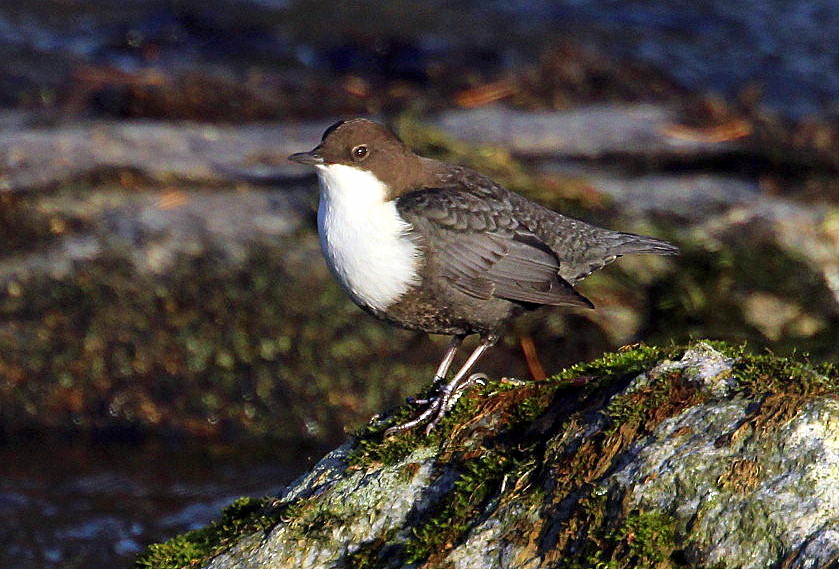Thomas Aquinas prescribed fervent prayer,
and I do pray, but, oddly, a bird has been
my best medicine when I find myself shrunken
and absent, as I do each year as the anniversary
of my son’s death approaches. And so I turn again
to this: a dipper I watched in Zion’s Virgin River.
It walked right into the rushing water that threaded
the eye of the canyon and then, without pausing,
walked along the bottom of the river, that brown bird
putting on a Joseph coat, its feathers wearing
a thin silvery film of air bubbles, the water an amber,
pale-green shade of tree-filtered light.
Funneled between the canyon walls, the sun
fell like a shaft of apocalyptic dazzle
as the stout, short-tailed, short-winged dipper—
its body so perfectly made for what it was doing—
walked quietly inside the water, as if the tumble
of currents pressing against it had no power,
or as if the bird had found a pond of quiet thought
at the river bottom. And how casually the dipper
popped back to the surface, bobbing and dipping
in the shallower water, until it climbed out
onto a rock, and began to sing—a clear, liquid song
that had a watery airiness I can still hear
and that helps me think of my son,
who must have been four or five at the time,
and sat along the riverbank dipping his bare feet
in the cold, faithful moving rush of water.
Robert Cording taught English and creative writing at College of the Holy Cross for thirty-eight years. He has published ten collections of poems, the latest of which is In the Unwalled City. He has been awarded two NEA fellowships in poetry and two Pushcart Prizes.




